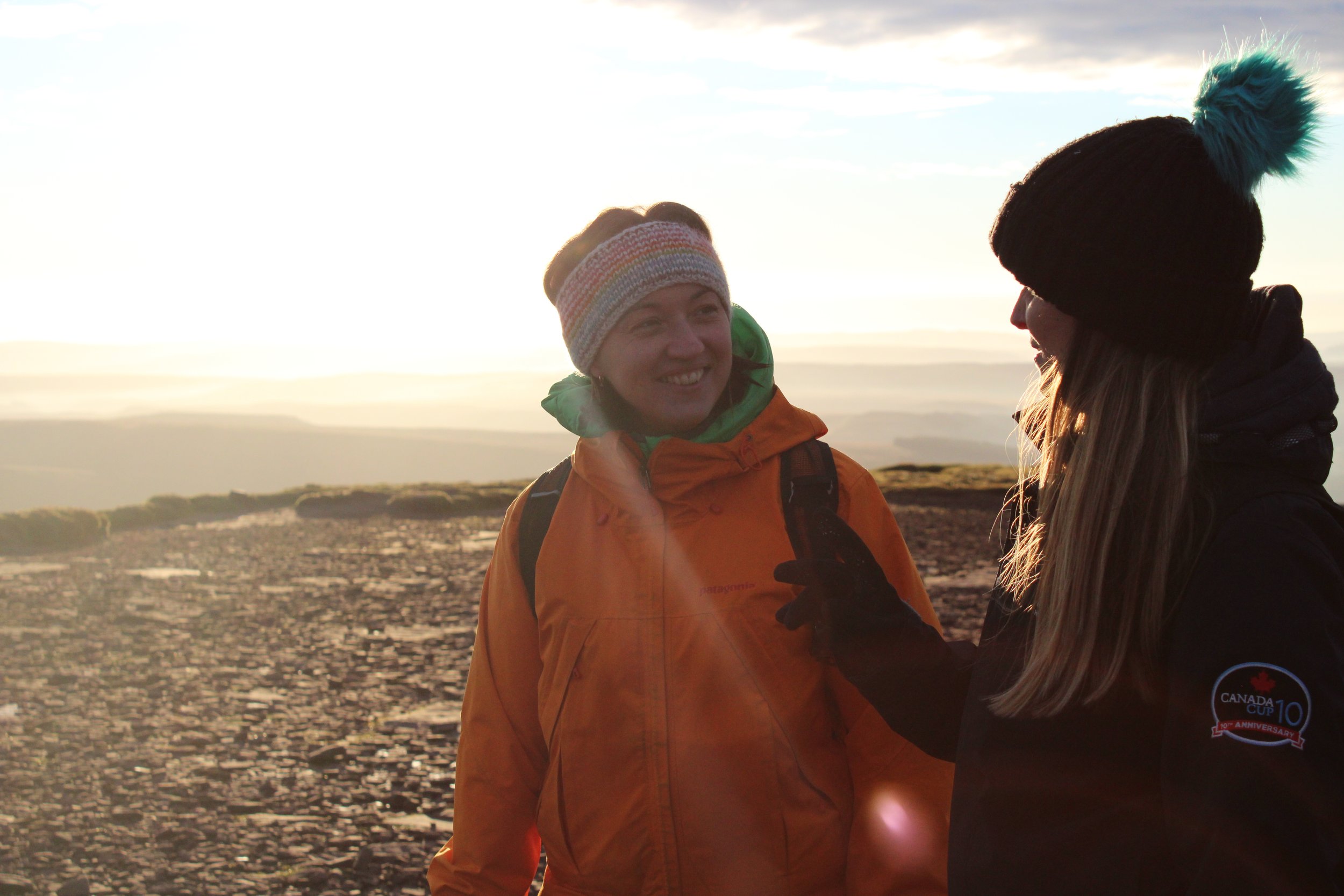Wild Trails Wales Guide: Preparing for a Challenge Walk
There are many reasons why people choose to sign up for a challenge walk. Some want to raise money or awareness for a cause that is important to them, some to walk in memory of someone, others for personal achievement and a goal to work towards.
There are several popular challenge walks in Wales such as the Welsh Three Peaks, Welsh 3000’s, Snowdon at night etc. No matter the challenge, you’ll probably want to do some preparation. For this guide I’m assuming you’ve already chosen your challenge, and are now wondering what on earth you’ve let yourself in for! So here is my guide to preparing for a challenge walk.
Your Reason Why
This may sound obvious but ask yourself why you are doing the challenge, and use this as your motivation, both in training and during the event itself. This will really help you to get out and train even when the weather is a bit miserable or your friend drops out. And during the challenge, it can be a driver to keep you going when it gets tough.
Know What You’ve Signed Up For
I think we’ve all signed up for something without reading too many of the details and then had a bit of a shock when it comes to actually doing it. Read as much as you can about the challenge; find out what the route is, what terrain you’ll be walking on, what the ascent or descent is, what the worst case scenario is for weather conditions (i.e. how bad would it have to be before they cancel!), and approximately how long it should take. Any reputable organisation running a challenge event should have this information for you. Knowing this, you can plan your training appropriately.
Training
The best training plan is one that you can stick to, and one that doesn’t take over your life completely. Try to fit the majority of your training around your everyday life.
Walk often - it should be pretty obvious that if you are not regularly active or walking regularly, then to suddenly walk 10 - 20 miles, or up a mountain, might be hard and it might hurt! By walking regularly you’ll build the muscles you need to keep you going for longer. Aim for around 3 miles / 5 km a few times a week as a basis.
Do some longer walks - fit in a few longer walks on weekends or whenever is best for you to fit them in. You don’t have to go up to the full distance of the challenge, but getting closer to it will help prepare your body and also give you a confidence boost.
Mimic the challenge route - it isn’t easy training for a mountain or coast path challenge if you live in an entirely flat area, but make use of whatever you have - if you don’t have any hills near you then climb up and down steps or stairs - lots of them!
Cross train - strength training is especially good when training for a walking challenge. Squats, deadlifts, lunges and calf raises all build muscle that you’ll use on a long walk. Try some unilateral exercises, which will help build stability when you’re on one leg, as you are for walking. Yoga is great for easing out tension which can build with a lot of walking. Running, cycling, swimming or any other form of exercise all help make walking easier.
Train with your kit - a challenge walk isn’t the time to be trying out new boots or waterproofs. Use them beforehand and make any tweaks so you know you’ll be comfortable on the day. If you’ll be carrying a bag during the event, make sure you train carrying a bag so you’re used to the weight and feel stable.
Practice fuelling during training - as above, try out different snack bars, drinks, sweets etc before the event, especially if you’re of a sensitive disposition! That way you’ll get to know if there’s anything which is going to upset your stomach or make you feel sick, and you can stick with fuel that you know works on the day.
Mental Preparation / Building resilience
The best way to prepare mentally for a challenge walk is to feel confident in your training, your kit and your fuelling. Beyond that, make yourself go out and walk when it is cold, wet and dark. That way, if you do end up with rubbish weather on your event, you’ll be used to being uncomfortable and will find it easier to push through, and if it turns out to be a lovely day then you’ll find it all the more enjoyable. Train when you’re tired or hungry, so that you’re used to a little discomfort and can cope better with it. Some positive affirmation doesn’t hurt either - tell yourself that you can do this and you will do it enough times and you’ll begin to believe it!
What to wear / pack
The organiser of your event should have a full packing list for you, but here is a non-exhaustive list of the basic kit for a challenge walk:
Comfortable hiking boots, worn in, but not worn out!
Comfortable socks and spare socks.
Quick-dry, comfortable top and trousers. Avoid fiddly zips, buttons and seams that can rub or chafe.
Mid layer, wind proof
Waterproof coat & over trousers - make sure these are really waterproof, not just water resistant
Walking poles
A day bag, approx 30 litres
Dry bags, to keep your stuff dry inside your bag if it rains
A mini first aid / toiletries kit - include blister plasters
Snacks and water, perhaps a flask of something hot if it’s likely to be cold
A mini rubbish bag for any tissues, wrappers etc.
Safety whistle, personal survival bag, battery charger pack, head torch & spare batteries.
I hope this helps you prepare for your challenge. If you have any questions drop them in the comments below.
Please get in touch if you would like help preparing for a challenge.

